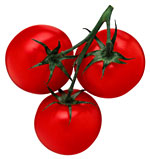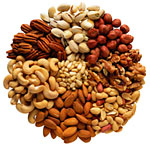Mike Adams, the Health Ranger
See article keywords and concepts |
 The fat-soluble vitamins include vitamin E, vitamin A and vitamin D.
It is vitamin D that I am most concerned about, because right now vitamin D deficiencies are widespread across Western populations, especially those in the United States. A deficiency in vitamin D directly promotes a numbers of serious diseases including diabetes, depression, osteoporosis, schizophrenia, breast cancer, prostate cancer and even gum disease. For people who are already overfed and undernourished, taking a fat-blocking pill that will reduce the absorption of vitamin D seems like dietary insanity to me. The fat-soluble vitamins include vitamin E, vitamin A and vitamin D.
It is vitamin D that I am most concerned about, because right now vitamin D deficiencies are widespread across Western populations, especially those in the United States. A deficiency in vitamin D directly promotes a numbers of serious diseases including diabetes, depression, osteoporosis, schizophrenia, breast cancer, prostate cancer and even gum disease. For people who are already overfed and undernourished, taking a fat-blocking pill that will reduce the absorption of vitamin D seems like dietary insanity to me. |
Mike Adams, the Health Ranger
See article keywords and concepts |
 So forget about those cheap, low-cost bottles of vitamin C, vitamin E or those B vitamins you might find at the wholesale clubs, pharmacies or grocery stores. These are typically not going to do you very much good, because your body doesn't need just vitamin C; your body needs a whole complement of vitamins from a lot of different sources. If you want vitamin C, go with whole-food concentrates. So forget about those cheap, low-cost bottles of vitamin C, vitamin E or those B vitamins you might find at the wholesale clubs, pharmacies or grocery stores. These are typically not going to do you very much good, because your body doesn't need just vitamin C; your body needs a whole complement of vitamins from a lot of different sources. If you want vitamin C, go with whole-food concentrates. |
Mike Adams, the Health Ranger
See article keywords and concepts |
 The study followed 8,171 women who were instructed to take relatively small amounts of these vitamins for more than nine years (600 IU of vitamin E, 500mg of vitamin C and 50mg of beta carotene were taken every other day -- a very small dose according to most modern nutritionists).
Despite these encouraging findings about the positive impact of antioxidants on health, nearly all the headlines in the mainstream media today are proclaiming vitamins E and C to be useless. The study followed 8,171 women who were instructed to take relatively small amounts of these vitamins for more than nine years (600 IU of vitamin E, 500mg of vitamin C and 50mg of beta carotene were taken every other day -- a very small dose according to most modern nutritionists).
Despite these encouraging findings about the positive impact of antioxidants on health, nearly all the headlines in the mainstream media today are proclaiming vitamins E and C to be useless. |
Mike Adams, the Health Ranger
See article keywords and concepts |
 REPPED: Headlines are once again ablaze with the shocking news that taking vitamin E will kill you. Once again, the entire study was based on people taking synthetic vitamin E, which has the opposite molecular structure of natural vitamin E (the kind of vitamin E found in nuts, seeds and other foods). Natural vitamin E is well known to prevent heart attacks and enhance cardiovascular disease, and there exists an abudance of clinical evidence to support that notion. Highlighting the dangers of synthetic vitamins is a favorite scare tactic of the conventional medical community. REPPED: Headlines are once again ablaze with the shocking news that taking vitamin E will kill you. Once again, the entire study was based on people taking synthetic vitamin E, which has the opposite molecular structure of natural vitamin E (the kind of vitamin E found in nuts, seeds and other foods). Natural vitamin E is well known to prevent heart attacks and enhance cardiovascular disease, and there exists an abudance of clinical evidence to support that notion. Highlighting the dangers of synthetic vitamins is a favorite scare tactic of the conventional medical community. |
Mike Adams, the Health Ranger
See article keywords and concepts |
 A second way to fake a vitamin meta-data study is to simply cherry-pick the results you want to include in your meta-data analysis. This is a routine trick used by dishonest researchers who have an agenda of discrediting nutritional supplements. To pull this one off, they simply eliminate all previous studies that showed positive results for vitamins, and include only previous studies that showed negative results. Then they run a statistical analysis on all the studies they hand-picked and declare – surprise! – those vitamins are dangerous! A second way to fake a vitamin meta-data study is to simply cherry-pick the results you want to include in your meta-data analysis. This is a routine trick used by dishonest researchers who have an agenda of discrediting nutritional supplements. To pull this one off, they simply eliminate all previous studies that showed positive results for vitamins, and include only previous studies that showed negative results. Then they run a statistical analysis on all the studies they hand-picked and declare – surprise! – those vitamins are dangerous! |
Mike Adams, the Health Ranger
See article keywords and concepts |
 If you want vitamin C, go with whole-food concentrates. You'll get plenty of vitamin C in a full-spectrum package that gives you antioxidants, phytonutrients, and cancer fighting compounds all at the same time; and none of that is actually listed on the label.
For example, if you buy the Alive Whole Food Energizer, you're not going to see on the label a listing of the B vitamins, the C vitamins, the antioxidants and so on, because it's not broken down like that. It just tells you what foods were used to make the product. If you want vitamin C, go with whole-food concentrates. You'll get plenty of vitamin C in a full-spectrum package that gives you antioxidants, phytonutrients, and cancer fighting compounds all at the same time; and none of that is actually listed on the label.
For example, if you buy the Alive Whole Food Energizer, you're not going to see on the label a listing of the B vitamins, the C vitamins, the antioxidants and so on, because it's not broken down like that. It just tells you what foods were used to make the product. |
Mike Adams, the Health Ranger
See article keywords and concepts |
 Once again, the entire study was based on people taking synthetic vitamin E, which has the opposite molecular structure of natural vitamin E (the kind of vitamin E found in nuts, seeds and other foods). Natural vitamin E is well known to prevent heart attacks and enhance cardiovascular disease, and there exists an abudance of clinical evidence to support that notion. Highlighting the dangers of synthetic vitamins is a favorite scare tactic of the conventional medical community. Once again, the entire study was based on people taking synthetic vitamin E, which has the opposite molecular structure of natural vitamin E (the kind of vitamin E found in nuts, seeds and other foods). Natural vitamin E is well known to prevent heart attacks and enhance cardiovascular disease, and there exists an abudance of clinical evidence to support that notion. Highlighting the dangers of synthetic vitamins is a favorite scare tactic of the conventional medical community. |
Mike Adams, the Health Ranger
See article keywords and concepts |
 Ascorbic acid (the active component of vitamin C) protects against the formation of these compounds. The study revealed vitamin C inhibited conversion to carcinogenic compounds by approximately 99.7 percent.
Notably, the research team also found when dietary fats were added to the mix, the antioxidant properties of vitamin C were neutralized, and the carcinogenic N-nitrosamine was formed. Ascorbic acid (the active component of vitamin C) protects against the formation of these compounds. The study revealed vitamin C inhibited conversion to carcinogenic compounds by approximately 99.7 percent.
Notably, the research team also found when dietary fats were added to the mix, the antioxidant properties of vitamin C were neutralized, and the carcinogenic N-nitrosamine was formed. |
Mike Adams, the Health Ranger
See article keywords and concepts |
 If you want vitamin C, go with whole-food concentrates. You'll get plenty of vitamin C in a full-spectrum package that gives you antioxidants, phytonutrients, and cancer fighting compounds all at the same time; and none of that is actually listed on the label.
For example, if you buy the Alive Whole Food Energizer, you're not going to see on the label a listing of the B vitamins, the C vitamins, the antioxidants and so on, because it's not broken down like that. It just tells you what foods were used to make the product. If you want vitamin C, go with whole-food concentrates. You'll get plenty of vitamin C in a full-spectrum package that gives you antioxidants, phytonutrients, and cancer fighting compounds all at the same time; and none of that is actually listed on the label.
For example, if you buy the Alive Whole Food Energizer, you're not going to see on the label a listing of the B vitamins, the C vitamins, the antioxidants and so on, because it's not broken down like that. It just tells you what foods were used to make the product. |
Mike Adams, the Health Ranger
See article keywords and concepts |
 These are typically not going to do you very much good, because your body doesn't need just vitamin C; your body needs a whole complement of vitamins from a lot of different sources. If you want vitamin C, go with whole-food concentrates. You'll get plenty of vitamin C in a full-spectrum package that gives you antioxidants, phytonutrients, and cancer fighting compounds all at the same time; and none of that is actually listed on the label. These are typically not going to do you very much good, because your body doesn't need just vitamin C; your body needs a whole complement of vitamins from a lot of different sources. If you want vitamin C, go with whole-food concentrates. You'll get plenty of vitamin C in a full-spectrum package that gives you antioxidants, phytonutrients, and cancer fighting compounds all at the same time; and none of that is actually listed on the label. |
Mike Adams, the Health Ranger
See article keywords and concepts |
 Synthetic vitamins
Many children's vitamins are made with cheap, synthetic "vitamin" chemicals that actually harm people who take them. Plus, many are loaded up with artificial colors, sucrose and chemical sweeteners. Avoid cheap, store-bought children's vitamins or anything containing cyanocobalamin (a toxic form of vitamin B12). Quality children's vitamins are available through sources like Nordic Naturals (fish oils) and www.IntegratedHealth.com (also check www.WellnessResources.com for high-quality supplements).
18. Synthetic vitamins
Many children's vitamins are made with cheap, synthetic "vitamin" chemicals that actually harm people who take them. Plus, many are loaded up with artificial colors, sucrose and chemical sweeteners. Avoid cheap, store-bought children's vitamins or anything containing cyanocobalamin (a toxic form of vitamin B12). Quality children's vitamins are available through sources like Nordic Naturals (fish oils) and www.IntegratedHealth.com (also check www.WellnessResources.com for high-quality supplements).
18. |
Mike Adams, the Health Ranger
See article keywords and concepts |
 These are typically not going to do you very much good, because your body doesn't need just vitamin C; your body needs a whole complement of vitamins from a lot of different sources. If you want vitamin C, go with whole-food concentrates. You'll get plenty of vitamin C in a full-spectrum package that gives you antioxidants, phytonutrients, and cancer fighting compounds all at the same time; and none of that is actually listed on the label. These are typically not going to do you very much good, because your body doesn't need just vitamin C; your body needs a whole complement of vitamins from a lot of different sources. If you want vitamin C, go with whole-food concentrates. You'll get plenty of vitamin C in a full-spectrum package that gives you antioxidants, phytonutrients, and cancer fighting compounds all at the same time; and none of that is actually listed on the label. |
Mike Adams, the Health Ranger
See article keywords and concepts |
 In classic doublespeak, one press release blares, "Vitamin C and Other Antioxidant Vitamins Provide No Protection from Cardiovascular Events." This particular distortion comes from the drug-touting Brigham and Women's Hospital (BWH), an affiliate of Harvard Medical School. BWH goes on to state, "researchers... have found that there is no evidence of benefit or risk from vitamins C, E or beta-carotene on cardiovascular events for women at a high risk for cardiovascular disease (CVD)."
Other medical associations and pharmaceutical-affiliated groups are making similar pronouncements. In classic doublespeak, one press release blares, "Vitamin C and Other Antioxidant Vitamins Provide No Protection from Cardiovascular Events." This particular distortion comes from the drug-touting Brigham and Women's Hospital (BWH), an affiliate of Harvard Medical School. BWH goes on to state, "researchers... have found that there is no evidence of benefit or risk from vitamins C, E or beta-carotene on cardiovascular events for women at a high risk for cardiovascular disease (CVD)."
Other medical associations and pharmaceutical-affiliated groups are making similar pronouncements. |
Mike Adams, the Health Ranger
See article keywords and concepts |
 You'll get plenty of vitamin C in a full-spectrum package that gives you antioxidants, phytonutrients, and cancer fighting compounds all at the same time; and none of that is actually listed on the label.
For example, if you buy the Alive Whole Food Energizer, you're not going to see on the label a listing of the B vitamins, the C vitamins, the antioxidants and so on, because it's not broken down like that. It just tells you what foods were used to make the product. From there, you have to understand that those foods provide those nutrients and much more in a full spectrum of great nutrition. You'll get plenty of vitamin C in a full-spectrum package that gives you antioxidants, phytonutrients, and cancer fighting compounds all at the same time; and none of that is actually listed on the label.
For example, if you buy the Alive Whole Food Energizer, you're not going to see on the label a listing of the B vitamins, the C vitamins, the antioxidants and so on, because it's not broken down like that. It just tells you what foods were used to make the product. From there, you have to understand that those foods provide those nutrients and much more in a full spectrum of great nutrition. |
Mike Adams, the Health Ranger
See article keywords and concepts |
 To review what has happened here, these studies looked at the health effect of a synthetic chemical that has been misnamed "vitamin E" because it has a similar molecular structure. In fact, this synthetic vitamin E has the opposite molecular structure of natural vitamin E. Yet researchers, scientists and journalists in the mainstream press continue to call this synthetic chemical "vitamin E" and thereby are scaring potentially millions of people away from taking nutritional supplements that are very beneficial to their health. To review what has happened here, these studies looked at the health effect of a synthetic chemical that has been misnamed "vitamin E" because it has a similar molecular structure. In fact, this synthetic vitamin E has the opposite molecular structure of natural vitamin E. Yet researchers, scientists and journalists in the mainstream press continue to call this synthetic chemical "vitamin E" and thereby are scaring potentially millions of people away from taking nutritional supplements that are very beneficial to their health. |
Mike Adams, the Health Ranger
See article keywords and concepts |
 Michael Holick, author, The UV Advantage)
Vitamin D prevents osteoporosis, depression, prostate cancer, breast cancer, and even effects diabetes and obesity. vitamin D is perhaps the single most underrated nutrient in the world of nutrition. That's probably because it's free: your body makes it when sunlight touches your skin. Drug companies can't sell you sunlight, so there's no promotion of its health benefits. Truth is, most people don't know the real story on vitamin D and health. So here's an overview taken from an interview between Mike Adams and Dr. Michael Holick. Michael Holick, author, The UV Advantage)
Vitamin D prevents osteoporosis, depression, prostate cancer, breast cancer, and even effects diabetes and obesity. vitamin D is perhaps the single most underrated nutrient in the world of nutrition. That's probably because it's free: your body makes it when sunlight touches your skin. Drug companies can't sell you sunlight, so there's no promotion of its health benefits. Truth is, most people don't know the real story on vitamin D and health. So here's an overview taken from an interview between Mike Adams and Dr. Michael Holick. |
Mike Adams, the Health Ranger
See article keywords and concepts |
 You'll get plenty of vitamin C in a full-spectrum package that gives you antioxidants, phytonutrients, and cancer fighting compounds all at the same time; and none of that is actually listed on the label.
For example, if you buy the Alive Whole Food Energizer, you're not going to see on the label a listing of the B vitamins, the C vitamins, the antioxidants and so on, because it's not broken down like that. It just tells you what foods were used to make the product. From there, you have to understand that those foods provide those nutrients and much more in a full spectrum of great nutrition. You'll get plenty of vitamin C in a full-spectrum package that gives you antioxidants, phytonutrients, and cancer fighting compounds all at the same time; and none of that is actually listed on the label.
For example, if you buy the Alive Whole Food Energizer, you're not going to see on the label a listing of the B vitamins, the C vitamins, the antioxidants and so on, because it's not broken down like that. It just tells you what foods were used to make the product. From there, you have to understand that those foods provide those nutrients and much more in a full spectrum of great nutrition. |
| In fact, if you ever find a study or a headline in the newspaper that says something like "Vitamin E is shown to have no benefits," that's because they were using an isolated, synthetic source of vitamin E. And, as is typical, they no doubt used very low dosage amounts. Any time a pharmaceutical company or a science researcher wants to discredit vitamins, it's very easy to structure a study that will do it. All they have to do is use very low doses and construct a bizarre set of study inclusion guidelines that eliminate all positive results. |
Mike Adams, the Health Ranger
See article keywords and concepts |
 Simultaneously, it contains vitamin B-12 and a full complement of other B-vitamins. These are the vitamins that most Americans are deficient in. Vegetarians especially tend to miss out on getting enough vitamin B-12 because that particular vitamin is not commonly available from the plant kingdom. So by eating spirulina, you can avoid any nutritional deficiencies in the B-vitamin area.
Spirulina also provides some outstanding macrominerals, such as calcium and magnesium, and at the same time provides important trace minerals. Simultaneously, it contains vitamin B-12 and a full complement of other B-vitamins. These are the vitamins that most Americans are deficient in. Vegetarians especially tend to miss out on getting enough vitamin B-12 because that particular vitamin is not commonly available from the plant kingdom. So by eating spirulina, you can avoid any nutritional deficiencies in the B-vitamin area.
Spirulina also provides some outstanding macrominerals, such as calcium and magnesium, and at the same time provides important trace minerals. |
Mike Adams, the Health Ranger
See article keywords and concepts |
 The Texas vitamin store raids
In 1992, the FDA prompted the Texas Department of Health (TDH) and the Texas Department of Food and Drug to conduct raids on more than 12 health food stores. Agents seized flaxseed oil, aloe vera, zinc supplements, vitamin C, and even Sleepytime Tea. One health food store owner was reportedly threatened by TDH with, "Don't talk to the press, or we'll come down on you twice as hard!"
None of the confiscated products were ever returned to the store owners, no charges were filed, and no reason for the raids was ever given. The Texas vitamin store raids
In 1992, the FDA prompted the Texas Department of Health (TDH) and the Texas Department of Food and Drug to conduct raids on more than 12 health food stores. Agents seized flaxseed oil, aloe vera, zinc supplements, vitamin C, and even Sleepytime Tea. One health food store owner was reportedly threatened by TDH with, "Don't talk to the press, or we'll come down on you twice as hard!"
None of the confiscated products were ever returned to the store owners, no charges were filed, and no reason for the raids was ever given. |
Mike Adams, the Health Ranger
See article keywords and concepts |
 The study revealed vitamin C inhibited conversion to carcinogenic compounds by approximately 99.7 percent.
Notably, the research team also found when dietary fats were added to the mix, the antioxidant properties of vitamin C were neutralized, and the carcinogenic N-nitrosamine was formed. The study revealed vitamin C inhibited conversion to carcinogenic compounds by approximately 99.7 percent.
Notably, the research team also found when dietary fats were added to the mix, the antioxidant properties of vitamin C were neutralized, and the carcinogenic N-nitrosamine was formed. |
| REPPED: The anti-cancer benefits of vitamin C can be dramatically reduced by intake of dietary fats, according to a new study conducted at the University of Glasgow. The results of the study, which simulated what happens in the human stomach, were presented earlier this month at the annual meeting of the Society of Experimental Biology in Glasgow.
Researchers investigated how vitamin C affects the acidification of nitrite in the stomach. This acidification can lead to production of potentially carcinogenic N-nitroso compounds related to stomach cancer. |
Mike Adams, the Health Ranger
See article keywords and concepts |
 It's the obvious question: If vitamins are so dangerous, where are all the dead vitamin takers? And if pharmaceuticals are so safe, where are all the super-healthy prescription drug patients? They are nowhere to be found.
The healthiest people, by far, are those who take supplements, who engage in regular exercise, and who avoid taking prescription drugs.
Why conventional medical researchers remain nutritionally illiterate
Western medicine still doesn't "get" nutrition. They think all health effects are achieved by single, isolated chemical constituents. But nutrition doesn't work that way. It's the obvious question: If vitamins are so dangerous, where are all the dead vitamin takers? And if pharmaceuticals are so safe, where are all the super-healthy prescription drug patients? They are nowhere to be found.
The healthiest people, by far, are those who take supplements, who engage in regular exercise, and who avoid taking prescription drugs.
Why conventional medical researchers remain nutritionally illiterate
Western medicine still doesn't "get" nutrition. They think all health effects are achieved by single, isolated chemical constituents. But nutrition doesn't work that way. |
| The reporting on this particular study, for example, confuses absolute risk with relative risk. vitamin A, according to the reports on this study, increased mortality risk by 16 percent. But that is a relative risk number, meaning that if 1 person out of 100 normally died, then 1.16 people out of 100 would die when taking these synthetic vitamin A supplements. In other words, it might not even be one additional person out of 100, or even out of 1000. |
| Many of the studies on vitamin E, by the way, were conducted on dying heart patients who were only expected to live two weeks, regardless of what they took.
A third way to distort the science is to confuse people with statistical obfuscation. The reporting on this particular study, for example, confuses absolute risk with relative risk. vitamin A, according to the reports on this study, increased mortality risk by 16 percent. But that is a relative risk number, meaning that if 1 person out of 100 normally died, then 1. |












